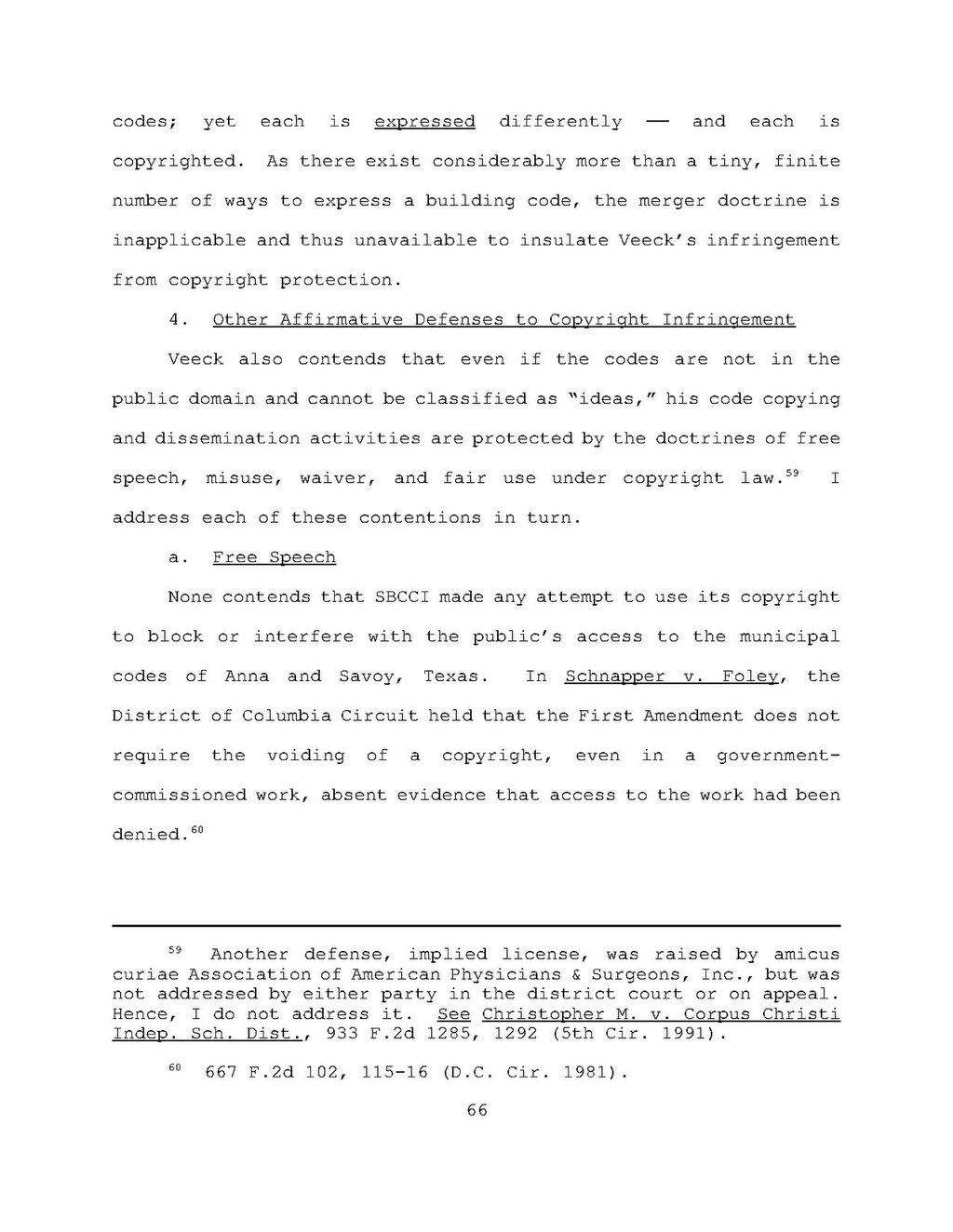codes; yet each is expressed differently—and each is copyrighted. As there exist considerably more than a tiny, finite number of ways to express a building code, the merger doctrine is inapplicable and thus unavailable to insulate Veeck's infringement from copyright protection.
4. Other Affirmative Defenses to Copyright Infringement
Veeck also contends that even if the codes are not in the public domain and cannot be classified as "ideas," his code copying and dissemination activities are protected by the doctrines of free speech, misuse, waiver, and fair use under copyright law. [1]. I address each of these contentions in turn.
a. Free Speech
None contends that SBCCI made any attempt to use its copyright to block or interfere with the public's access to the municipal codes of Anna and Savoy, Texas. In Schnapper v. Foley, the District of Columbia Circuit held that the First Amendment does not require the voiding of a copyright, even in a government-commissioned work, absent evidence that access to the work had been denied.[2]
- ↑ Another defense, implied license, was raised by amicus curiae Association of American Physicians & Surgeons, Inc., but was not addressed by either party in the district court or on appeal. Hence, I do not address it. See Christopher M. v. Corpus Christi Indep. Sch. Dist., 933 F.2d 1285, 1292 (5th Cir. 1991).
- ↑ 667 F.2d 102, 115-16 (D.C. Cir. 1981).
66
